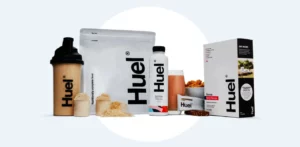Cardboard and paperboard significantly more sustainable than plastic
Away with plastic in the supermarket: RHIEM has been producing more packaging for fruit, vegetables, baked goods and more for a year now. More than 6,000 tons of food were packaged sustainably, hygienically and safely by producers in trays, trays, folding boxes and baskets from RHIEM.
This balance sheet is impressive: RHIEM Packaging & Print produced a total of 23.6 million food packaging units in 2021. The bowls, trays, baskets or boxes usually contain 100 to 500 grams of fruit, vegetables, baked goods and other foods – for the good of nature: a study by the University of Freiburg has now confirmed that corrugated cardboard is significantly more environmentally friendly than polyethylene (PET): while the production of a plastic tray produces around 0.036 grams of CO2 equivalents, corrugated cardboard produces just 0.017 grams and not even half that amount. What’s more, according to the Society for Packaging Market Research, a fifth of all plastic packaging in German-speaking countries could be replaced by cardboard and corrugated cardboard, and in the fruit and vegetable segment the figure is as high as 64%.
Cardboard and paperboard are setting a sustainable trend in the food trade, which RHIEM Packaging & Print has been successfully serving for more than a year: “Our trays and boxes made of corrugated cardboard and paperboard have replaced packaging made of plastic in many places,” says Ulrich Treiber, Managing Director of the Voerde-based company. “All in all, 32 tons less CO2 were emitted as a result – and that corresponds to the absorption capacity of a small, old beech forest.”
Cardboard and cartons popular with retailers and consumers
Retailers and consumers are rethinking and increasingly opting against plastics such as PET at fruit and vegetable counters, as well as against the wooden baskets in which fresh produce often goes moldy. Reusable packaging would be desirable, but it is not economically feasible for berries, tomatoes and other fresh foods. Cardboard and paperboard offer environmentally friendly alternatives.
Retailers appreciate the fact that these lightweight materials protect sensitive foodstuffs from knocks during transportation and improve shelf life because they compensate for humidity and climate during refrigeration. Fruit and vegetables can be safely packed, stacked and transported in trays, folding boxes and baskets. And unlike the rough, recycled fiber forms, cardboard and cardboard packaging can be printed, can be individually shaped and allow more visibility on the products. “We expanded our production facilities in 2020 and can therefore offer even more different packaging designs,” reports Dirk Nondorf, also Managing Director of RHIEM Packaging & Print. “Retailers are now demanding elaborate, environmentally friendly trays, which we usually deliver in an upright position because they are easier to fill.”
Consumers can look forward to lots of new, practical and sophisticated products on the shelves and at the counters in 2022. Handles and lids on fruit and vegetable cartons simplify handling and there is no need for foiling. The sustainable packaging can also provide direct and clear information about the origin and quality of fruit and vegetables. Eye-catching design also enhances the content and sets its own accents.
High recycling rate and innovative fibers from nature
The good eco-balance of paper, cardboard and corrugated cardboard is primarily based on their recycling. Of all the plastic packaging produced in Germany each year, not even half is recycled today. In contrast, the industry used almost 80 percent waste paper in the production of paper, cardboard and paperboard. “We process a wide variety of materials,” explains Nondorf. “In addition to traditional corrugated cardboard and cardboard packaging, FSC-certified materials from sustainable forestry with a high recycled content are now increasingly in demand. New materials with a high proportion of grass and other natural fibers improve the selection, while mineral oil-free inks improve sustainability and recyclability.” RHIEM Packaging & Print is also increasingly producing climate-neutrally on request, because its customers want to reduce their own carbon footprint.
However, there are now also supply bottlenecks for paper and cardboard. The company in Voerde is responding to this with flexibility, has expanded the number of its suppliers and is making integrated plans: “Delivery times are currently increasing tenfold in some cases, if material can be scheduled and is available at all,” says Treiber. “We can plan better and without detours if customers integrate us into their processes.” This simplifies planning for everyone involved and brings advantages in the procurement of packaging materials – and in the design of sustainable cardboard or cartons: “RHIEM Packaging & Print,” says Treiber, “designs suggestions for the contours of new trays or baskets to match the desired materials.”





